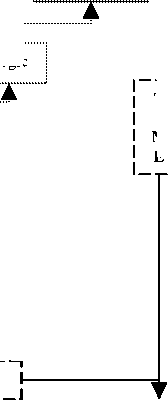Existence

Nature-absolute
Nature-relative

Objective = umbra
Subjective = penumbra
Simple nature

Purely intellectual
= metaphysical
Purely material
= epistemological
Common notions
= principles of logic

Real
(stands by
itself)
Formal semantics
Cognitive semantic
Linguistic semantics
Science
zɪ......
Logic
Logical
(stands in
relation to
others)
T
I
M
E
KNOWLEDGE EVOLUTION

Figure 3
4. Cognitive Semantics and Embodiment Hypothesis
The basic assumption of cognitive semantics is the embodiment of the knowledge. In
contrast with the Cartesian rationality, where the mind-body dualism plays a crucial role,
cognitive semantics erases the three hundred years’ old Cartesian boundary between
‘nature-absolute’ and ‘nature-relative’. This boundary now becomes permeable. Semantic
study now requires linguistic, as well as neurological signatures (Pinker & Ullman 2002).
Whatever knowledge representation we have that should be verified in terms of the
cognitive revolution, primarily on basis of the experiential evidences. Knowledge in
More intriguing information
1. Education Responses to Climate Change and Quality: Two Parts of the Same Agenda?2. Business Networks and Performance: A Spatial Approach
3. The name is absent
4. The name is absent
5. Permanent and Transitory Policy Shocks in an Empirical Macro Model with Asymmetric Information
6. The name is absent
7. The Integration Order of Vector Autoregressive Processes
8. MANAGEMENT PRACTICES ON VIRGINIA DAIRY FARMS
9. The name is absent
10. The Dynamic Cost of the Draft